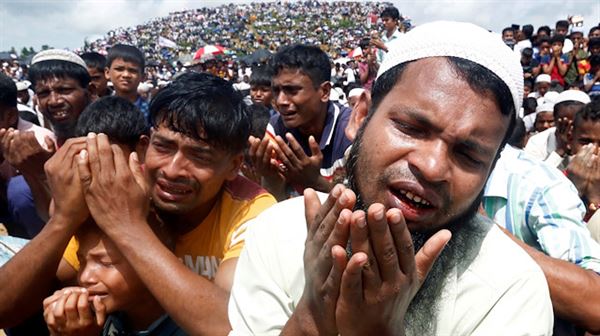A Turkish University on Wednesday held a seminar about safe zones, refugees and their repatriation to home countries, with one expert arguing these is
A Turkish University on Wednesday held a seminar about safe zones, refugees and their repatriation to home countries, with one expert arguing these issues have resonated since World War II.
The seminar, titled ” ‘Safe’ Zones, Refugee Protection and Repatriation: Implications for Syrians in Turkey”, was held at the Social Sciences University of Ankara in the capital.
Speaking at the event, International Relations expert Ahmet Icdogdu said the international refugee regime had begun as a concept centered initially on refugees, but shifted to a state-centered model over time.
According to Icdogdu, who also heads the MIREKOC research center, large masses of people had also been displaced in the post-World War II period within the newly determined borders.
Notably, he said some people in Europe were forced to leave their homes due to authoritarian communist regimes. In response, the EU adopted an “exilic model” in 1948-1991, embracing the refugees as it sought to protect them.
Countries lost interest in this model after the fall of communism, with various new ideas emerging as fresh conflicts raged across the globe in areas such as Afghanistan, Iran and Iraq that led to further refugee waves.
The end of the Cold War eventually gave birth to a new model, known as the safe-zone, with countries unlikely to offer permanent asylum to all refugees, he said, adding that Turkey welcomed about half a million Kurds who fled former Iraqi leader Saddam Hussein in the early 1990s.
He went on to say that a safe zone was eventually established after coordination between the U.S. and UN, with Kurds moving back to the safe-zone area.
Icdogdu added that over 3.6 million Syrians took shelter in Turkey following the eruption of civil war in their country in 2011.
Turkey pursued an open-door policy for Syrians as it thought the crisis would be a short-term problem, though it eventually evolved into a greater issue with an increasing number of Syrians taking shelter across their northern border, he noted.
Referring to the safe-zone planned by Turkey in northern Syria — where up to two million Syrians are projected to return according to state officials — he called on international organizations such as the UN and the EU to take responsibility in “burden-sharing” in social and financial challenges.
He went on to say that the repatriation of refugees to any safe zone should be voluntary and that their safety and sustainability should be ensured.
